Search for women who worked on wartime locomotives
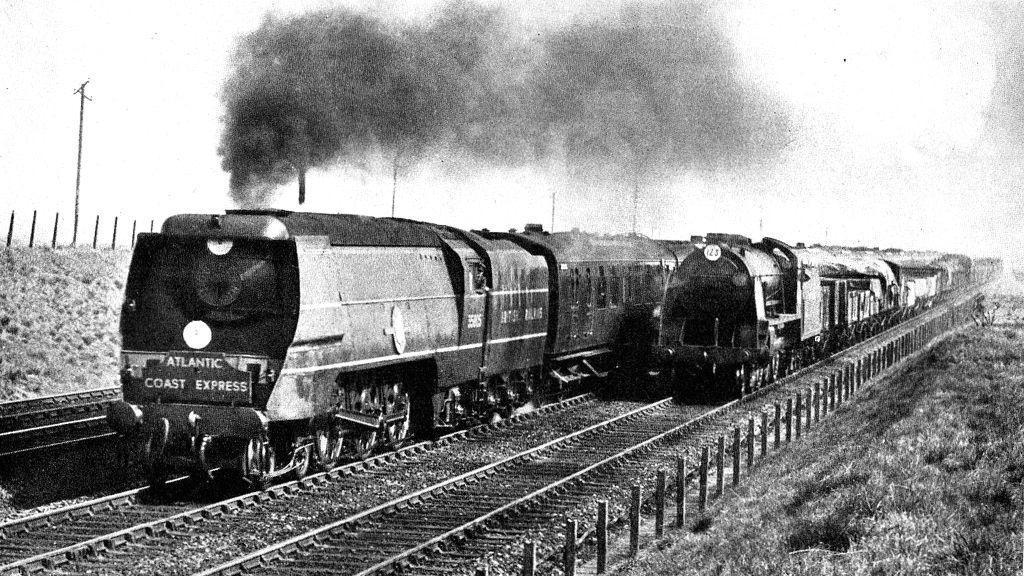
The Canadian Pacific Atlantic Coast Express in 1950
- Published
Heritage railway researchers are looking for the women who helped build a wartime steam locomotive during World War Two.
The team at Watercress Line Heritage Railway in Hampshire are trying to find those who worked on the Canadian Pacific boiler.
Experts are currently restoring the Merchant Navy class locomotive, which was built at Eastleigh Works in 1941.
Project leader Becky Peacock has found names of women who worked on the boiler during her research.
During the war, women were employed to take the places of men who had been called up for military service.
Ms Peacock has found names of women in documents for work on the locomotive, but said they are marked in red, meaning they were let go at the end of the war.
The restoration works for the Canadian Pacific have been funded by the National Lottery.
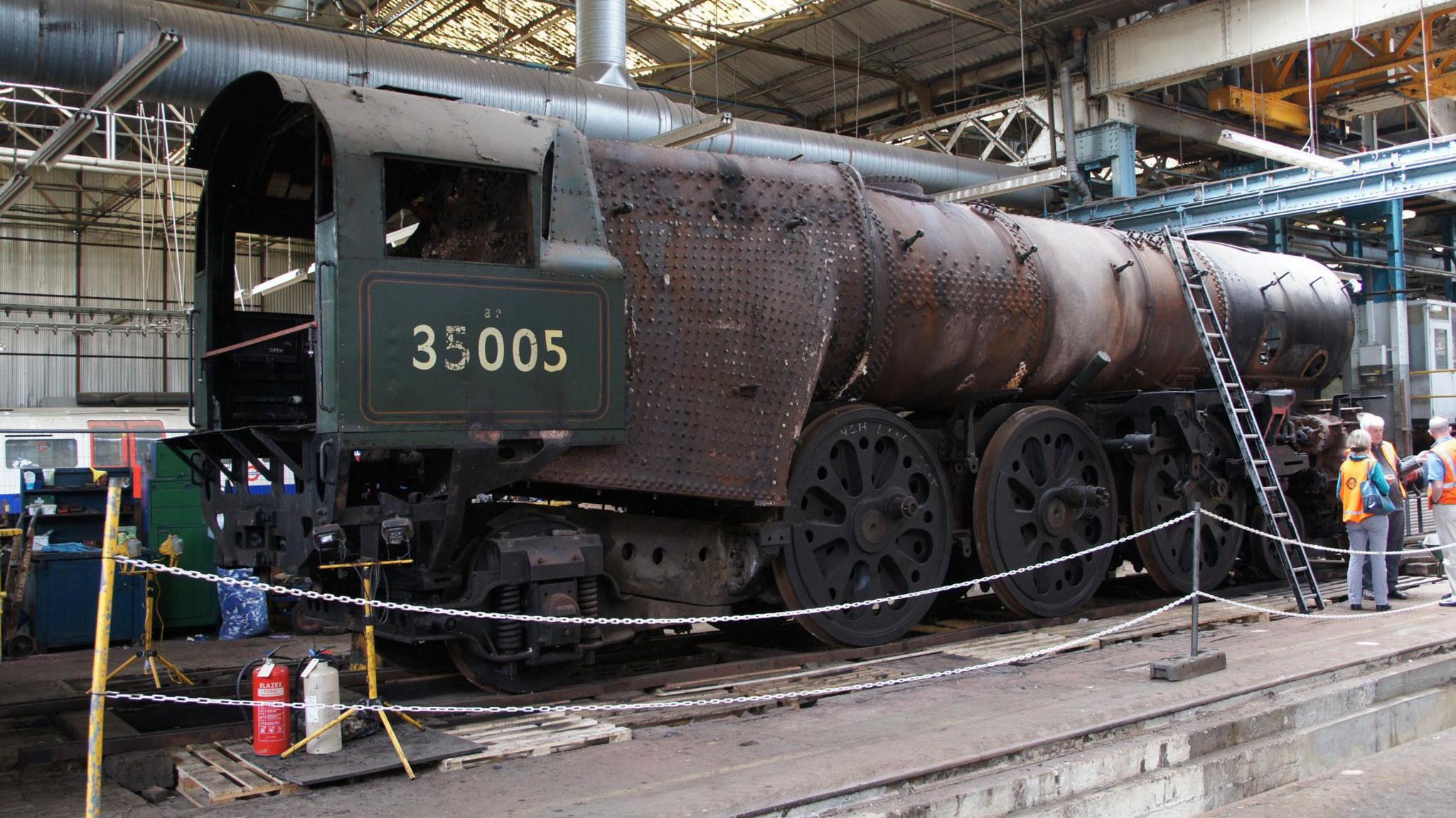
The Canadian Pacific has been at Eastleigh Works for restoration
Watercress Line CEO Rebecca Dalley said: “At the time and just a mile away, women building Spitfires were being photographed and promoted. Their war service was acknowledged and celebrated.
"The loco women have been written out of history.”
Ms Dalley explained Merchant Navy steam locomotives were the only major engine class to be designed and built during the war, due to the shortage of labour and materials at that time.
The locomotive, 35005 Canadian Pacific, is now in the final stages of restoration at the Watercress Line engineering works in Ropley.
Ms Dalley continued: “This has been a huge, nationally important project over the last decade, involving hundreds of people across the south of England who have volunteered for the project.
“The last piece of the puzzle is the women who built these magnificent engines. It’s time to recognise the sacrifices they made to step in when they were needed.
"We’re asking the public to let us know if their family member was involved in building Canadian Pacific and the other Merchant Navy locos during the war. Who knows, we might find someone still with us to join us for the launch.”
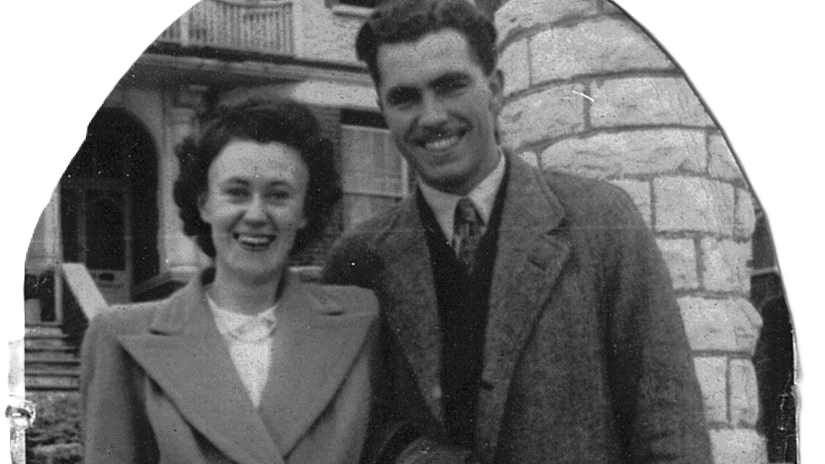
Pam and Charles Wilson both works at Eastleigh Works during World War Two
Steve Wilson is a boiler shop volunteer and has worked on the restoration project for 12 years.
He said his father joined the war and was later held as a prisoner working on the Burma Railway, while his mother, Pam, stayed at Eastleigh Works.
Mr Wilson said: “Both my parents worked at the Eastleigh Works during the Second World War, my father was a blacksmith, and my mother worked as machinist on the capstan lathe right through the war, making parts for new locomotives.
"It is wonderful to think that she may well have made studs that are still in Canadian Pacific today.”
Get in touch
Do you have a story BBC Hampshire & Isle of Wight should cover?
You can follow BBC Hampshire & Isle of Wight on Facebook, external, X (Twitter), external, or Instagram, external.
- Published22 September 2024
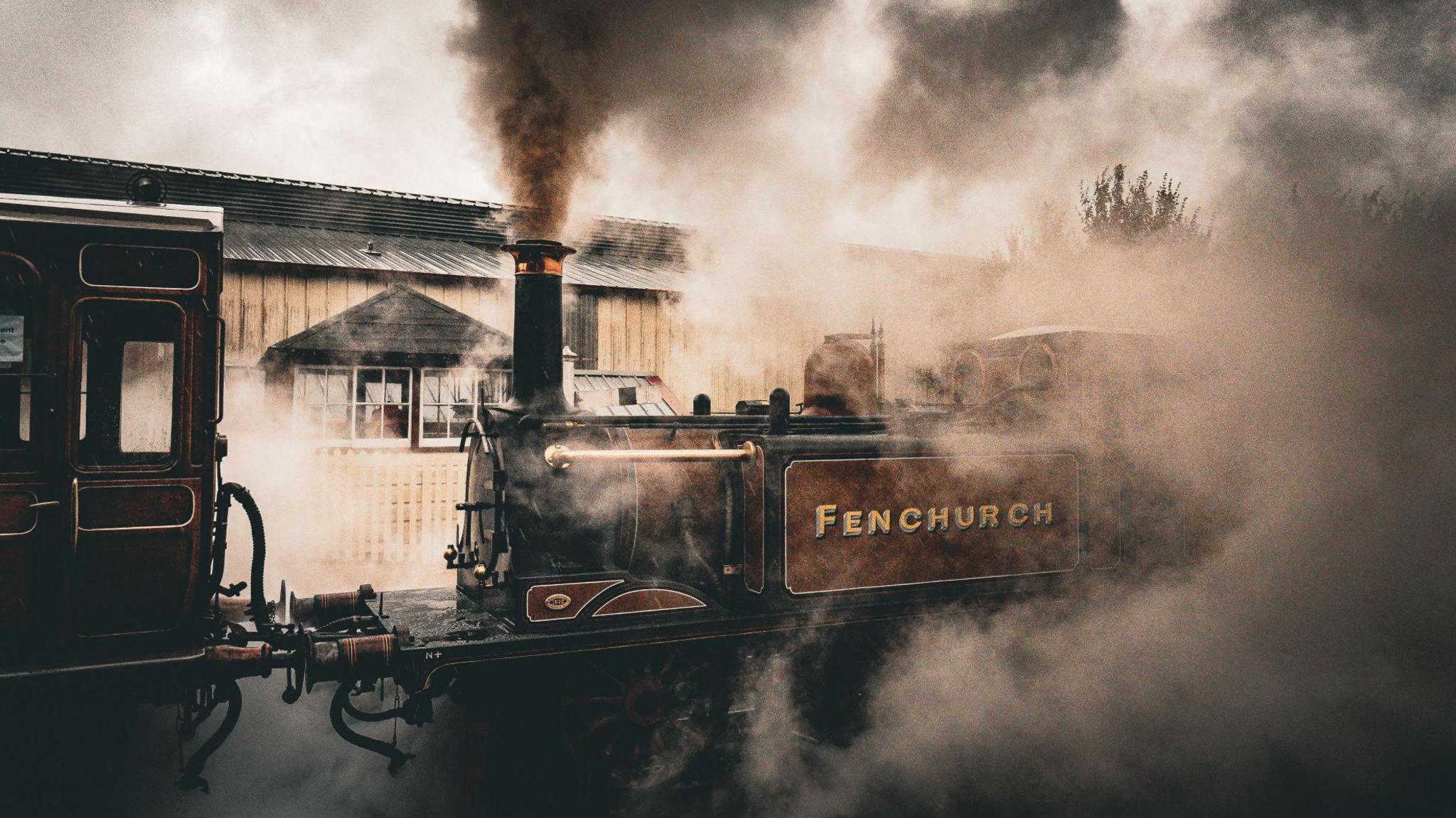
- Published13 November 2021

- Published14 February 2020
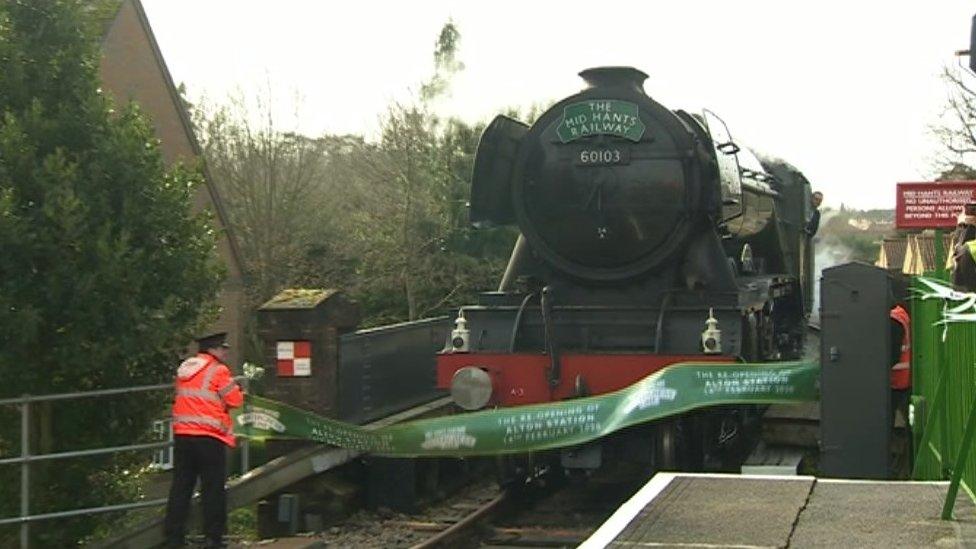
- Published24 March 2011